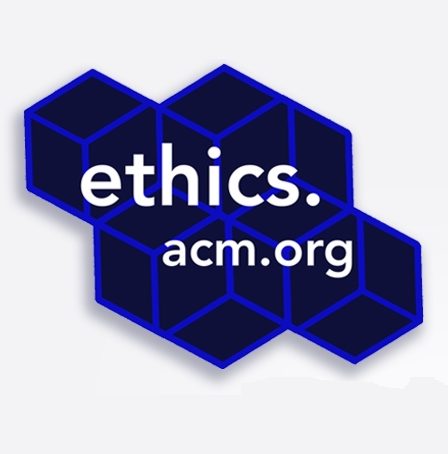| ACM Revises Code of Ethics |
| Written by Sue Gee | |||
| Tuesday, 24 July 2018 | |||
|
The ACM has updated its Code of Ethics and Professional Conduct, which is considered the standard for the computing profession, and has been adopted by computing professionals, organizations and technology companies around the world.
The Association for Computing Machinery (ACM) is the world's largest educational and scientific computing society and, with around 100,000 members from 190 countries, is the largest professional body for all aspects of computing. Its Code of Ethics is a collection of principles and guidelines designed to help computing professionals make ethically responsible decisions in professional practice and, in the words of the code itself: "expresses the conscience of the profession". According to the press release announcing the revised Code of Ethics, the updated code addresses the significant advances in computing technology since the previous version, drawn up in 1992 and takes account of the growing pervasiveness of computing in all aspects of society. The impetus for undertaking the revision process which took two years and included extensive input from computing professionals around the world stemmed from the emergence of new technologies such as online shopping, mobile phones and social media platforms didn't exist in 2012 and the World Wide Web was then in its infancy. These days the ubiquitous nature of computing places new responsibilities on the professionals who build and maintain these systems and technologies. Reflecting the prevalence of computing technology in today, the updated code adds new responsibilities for computing professionals in leadership roles to “recognize and take special care of systems that become integrated into the infrastructure of society” (Principle 3.7). The preamble to the new ACM Code of Ethics and Professional Conduct ("the Code") states: The Code is designed to inspire and guide the ethical conduct of all computing professionals, including current and aspiring practitioners, instructors, students, influencers, and anyone who uses computing technology in an impactful way. Additionally, the Code serves as a basis for remediation when violations occur. The Code includes principles formulated as statements of responsibility, based on the understanding that the public good is always the primary consideration. Each principle is supplemented by guidelines, which provide explanations to assist computing professionals in understanding and applying the principle. The Code comprises four sections. Section1outlines fundamental ethical principles that form the basis for the remainder of the Code. Section 2 addresses additional, more specific considerations of professional responsibility. Section 3 guides individuals who have a leadership role, whether in the workplace or in a volunteer professional capacity and principles involving compliance with the Code are given in Section 4.
To coincide with the release of the updated Code of Ethics, the ACM is launching a series of resources designed to aid ethical decision making which includes case studies demonstrating how the principles in the code can be applied to specific ethical challenges. Topics range from Malware Disruption and Abusive Workplace Behavior to Dark UX Patterns abd Malicious Inputs to Content Filters. The incidents described in the case studies are fictitious and are not intended to refer to actual entities. Also new is the Ask an Ethicist advice column, designed: to help computing professionals navigate the sometimes challenging choices that can arise in the course of their work. There are currently two answered questions, both relating to aspects of vulnerability disclosure. The ACM's Committee on Professional Ethics is soliciting ideas for questions that might make a good post in an ongoing blog or video.
More InformationACM Code of Ethics and Professional Conduct Related ArticlesEuropean Perl Conference In Glasgow, Massive Summer Event Formation of Partnership On AI To be informed about new articles on I Programmer, sign up for our weekly newsletter, subscribe to the RSS feed and follow us on Twitter, Facebook or Linkedin.
Comments
or email your comment to: comments@i-programmer.info
|
|||
| Last Updated ( Tuesday, 24 July 2018 ) |


